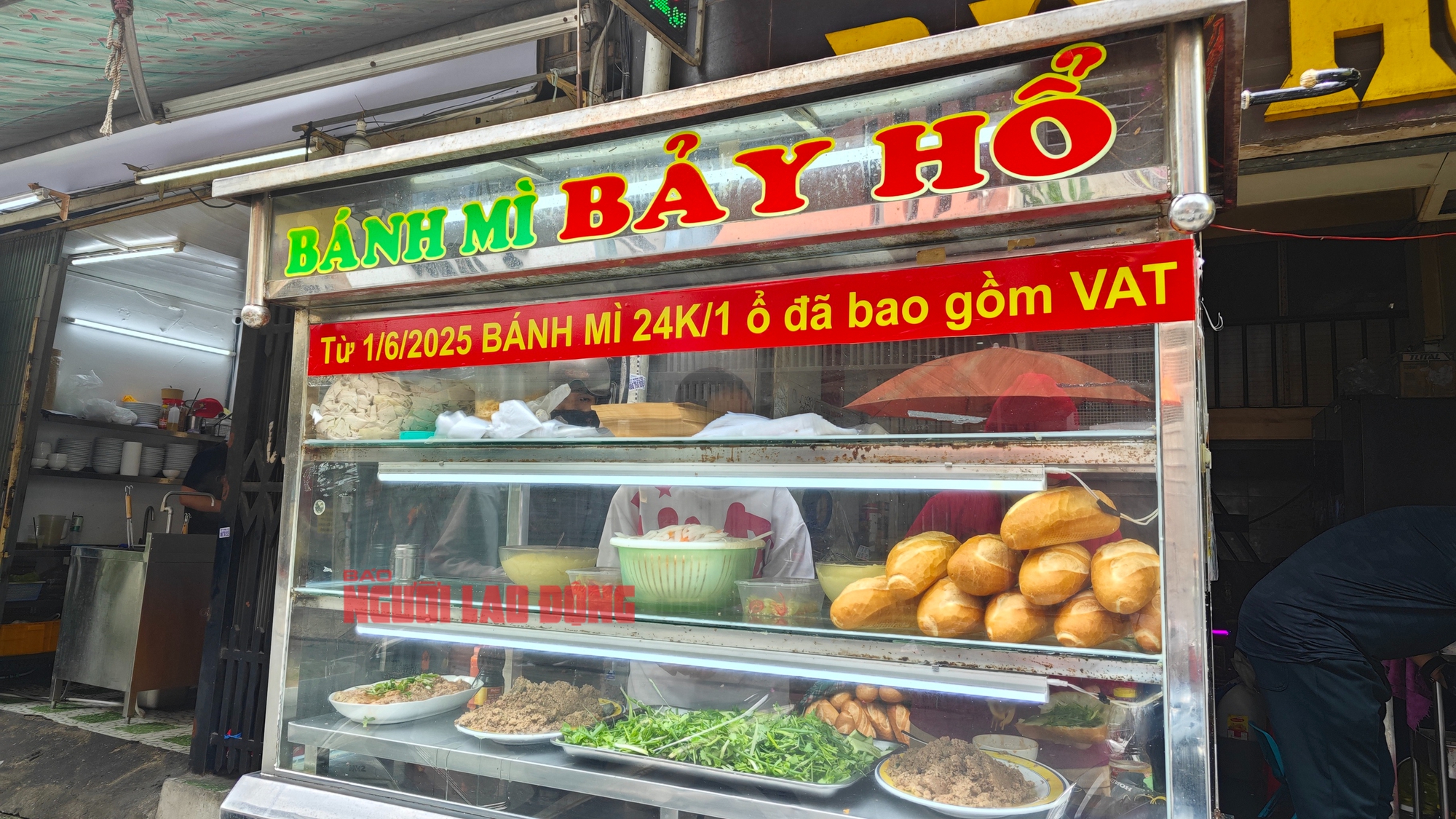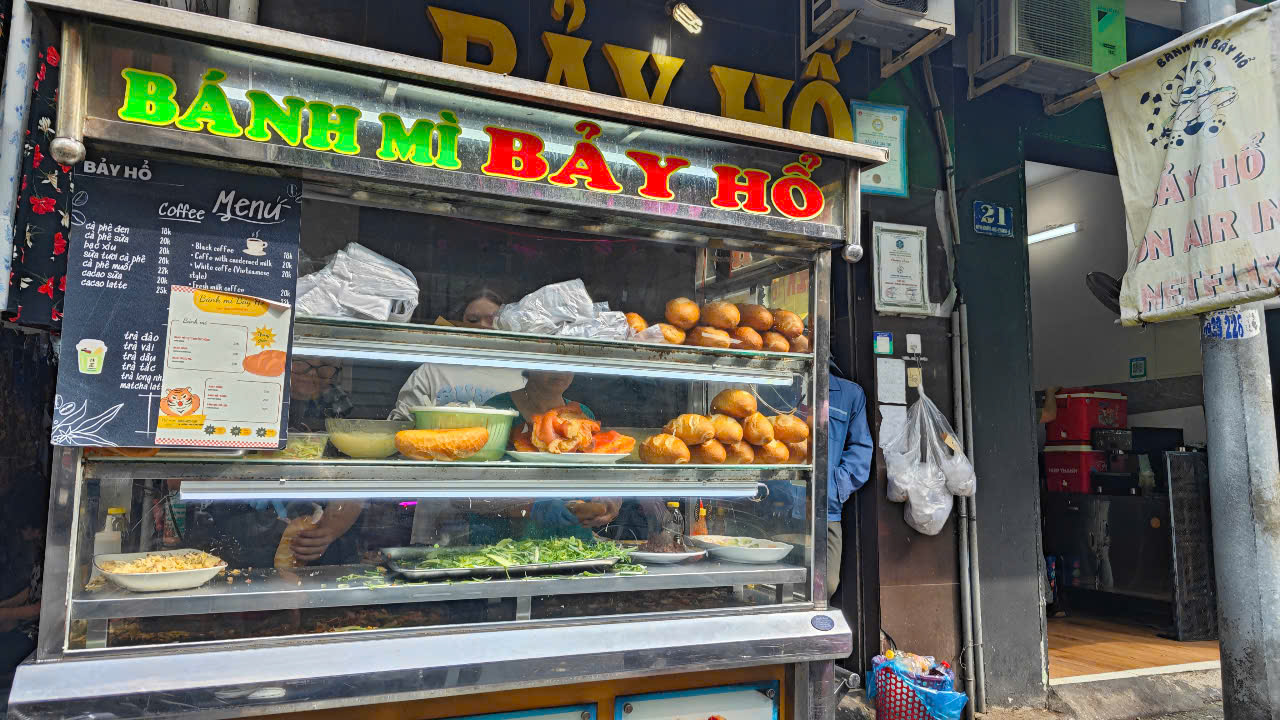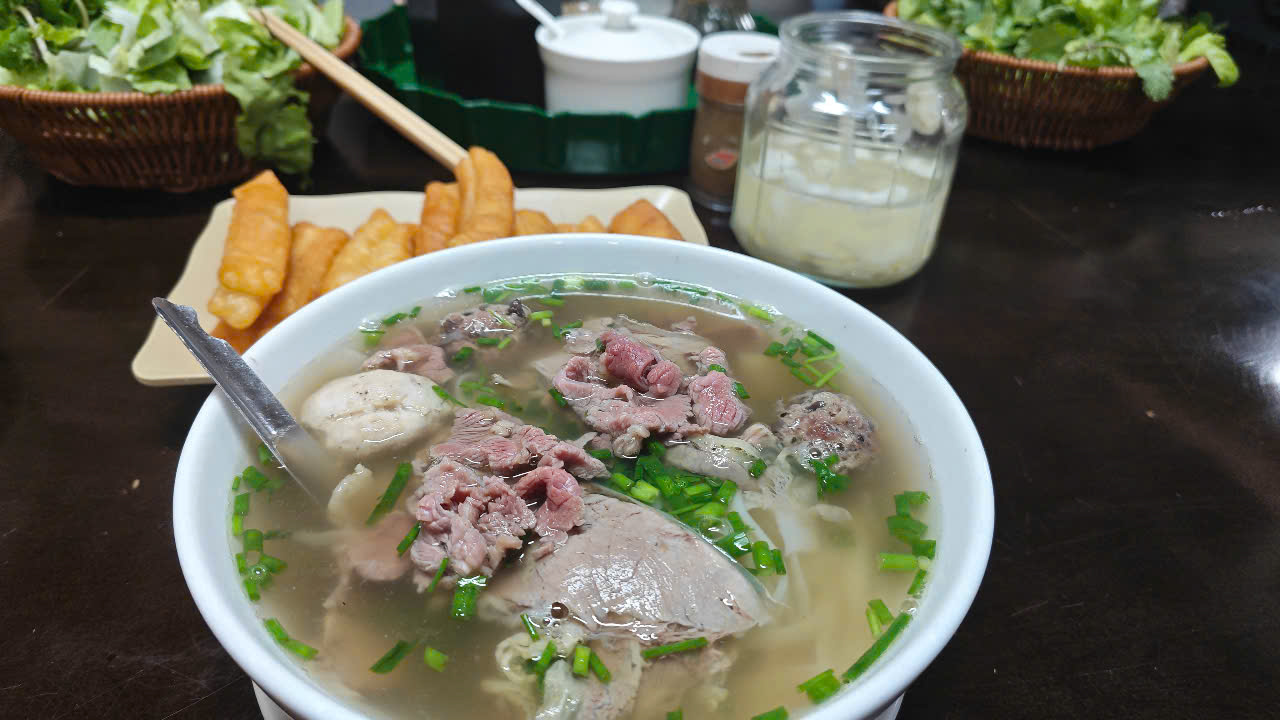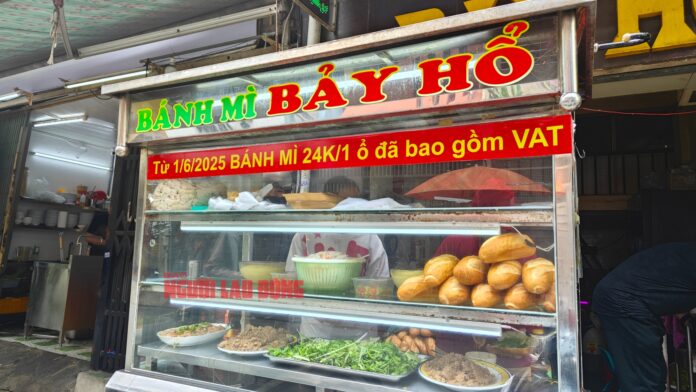Since the beginning of June, many restaurants and eateries in Ho Chi Minh City have adjusted their prices upwards, surprising and worrying consumers when it comes to dining out.
Observations at famous locations, such as the Banh Mi Bay Ho bakery on Huynh Khuong Ninh Street (District 1), revealed that the price of a loaf of bread has increased from 22,000 VND to 24,000 VND. On the bakery’s glass counter, a notice is publicly displayed, stating: “From June 1, 2025, bread is priced at 24k/loaf – VAT included.”
This is the second time this well-known bakery has increased its prices in 2025. Earlier in the year, the price was adjusted from 20,000 VND, a price that had been stable for a long period, to 22,000 VND per loaf. Currently, the bakery accepts QR code payments.
It is understood that this bakery operates as a household business and sells a significant volume of bread daily.
Not only Banh Mi Bay Ho, but another bakery on Pham Viet Chanh Street (Binh Thanh District) has also increased its prices by 5,000 VND per loaf when sold through food delivery applications. The owner shared that they are considering adjusting prices for customers who buy directly from the counter but are hesitant due to concerns about consumer reactions.
Explaining the reason for the price increase, the owner said: “On the application, the total revenue is clearly displayed, including a 4.5% tax rate and a platform discount of up to 25%. With such costs, maintaining the previous price is very challenging. Meanwhile, input costs for food items, packaging, utilities, and so on have all increased, making price adjustments almost mandatory. However, increasing prices may lead to a decrease in customers, making it a difficult decision.”

New notice at Banh Mi Bay Ho bakery

Previously, Banh Mi Bay Ho’s lowest price was 22,000 VND per loaf, and before that, it was 20,000 VND
Similar situations are occurring at traditional eateries. Ms. Nguyen Thi Hanh, owner of a bun bo (beef noodle soup) restaurant in Thu Duc City, shared that the implementation of electronic invoices with VAT compelled her to recalculate the prices of each dish. However, finding the right balance between covering costs and not driving customers away remains a concern.
“If we don’t increase prices, the restaurant will incur losses, but a slight increase may not be enough to cover the expenses, and a significant increase may lead to a loss of customers. The biggest risk is that when we raise prices to comply with the new regulations, other restaurants may not follow suit, putting us at a disadvantage,” Ms. Hanh worriedly shared.
According to her, a short-term solution could be to increase prices slightly, by a few thousand dong per bowl, to cover the additional costs, while clearly stating on the menu that the prices exclude VAT to maintain competitive listed prices.

Dining out is becoming more expensive
Mr. Nguyen Thai Binh, an F&B service industry expert and director of the Concepts Academy (VCS), stated that there is currently a wave of F&B price increases due to various factors such as rising electricity and raw material costs, the need for invoices for inputs, and many households having to pay an additional 4.5% tax when switching from tax estimation to invoice issuance. Furthermore, from July 1, 2022, household businesses must also pay mandatory social insurance, resulting in additional expenses.
Mr. Binh assessed that the price increases implemented by some restaurants are “reasonable” given the rising business costs. However, price adjustments should be strategically planned to avoid losing customers, as customers may be drawn to restaurants that haven’t increased their prices or have done so to a lesser extent.
“In the initial stage, for the first one to two weeks, restaurants can increase prices but offer something extra to customers. For example, if the current price of a bowl of pho is 35,000 VND, it can be increased to 40,000 VND, but customers will get an additional glass of iced tea or a boiled egg, helping them get used to the new price. After that, the new price can be officially applied,” Mr. Binh advised.
The Shadowy Operations of the Company Behind the Dietary Supplement Spill in Binh Chanh
“Authorities in Ho Chi Minh City are urgently tracing the origins and suppliers of a batch of discarded nutritional supplements found in Binh Chanh. The focus is on identifying the source and any connected parties to ensure a comprehensive investigation.”
The E-commerce Platform to Take Care of Your Tax Obligations: A Seamless Solution for Online Sellers
The recent Government Decree 117 has brought about a significant change in the e-commerce landscape. From July 1st onwards, all e-commerce platforms will be required to withhold and pay taxes on behalf of their sellers. This new regulation is set to revolutionize the way online businesses operate, with potential far-reaching implications for the entire industry.
The City People’s Committee Proposes to Expand Leadership Roles at the Ward and Commune Levels
“Ho Chi Minh City has shortlisted 510 individuals for the positions of Chair and Vice-Chair of the People’s Committees in the newly established wards and communes. The city has also proposed the addition of one more Vice-Chair position to accommodate the efficient governance of these areas.”



















![[On the Hot Seat] Haval Vietnam: Missteps and All](https://xe.today/wp-content/uploads/2024/08/quote-temp-1-100x70.jpg)

